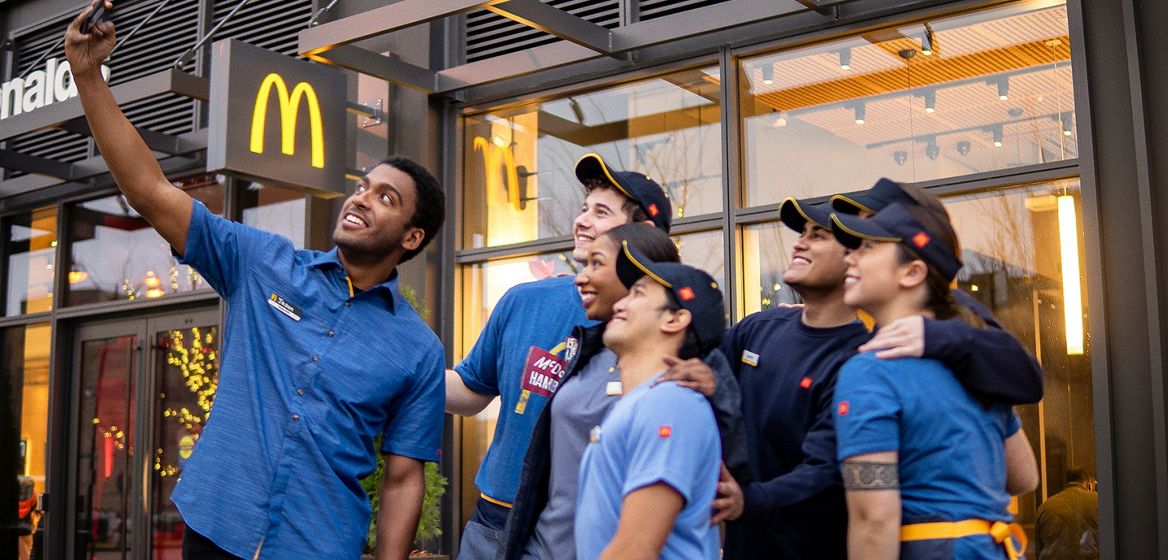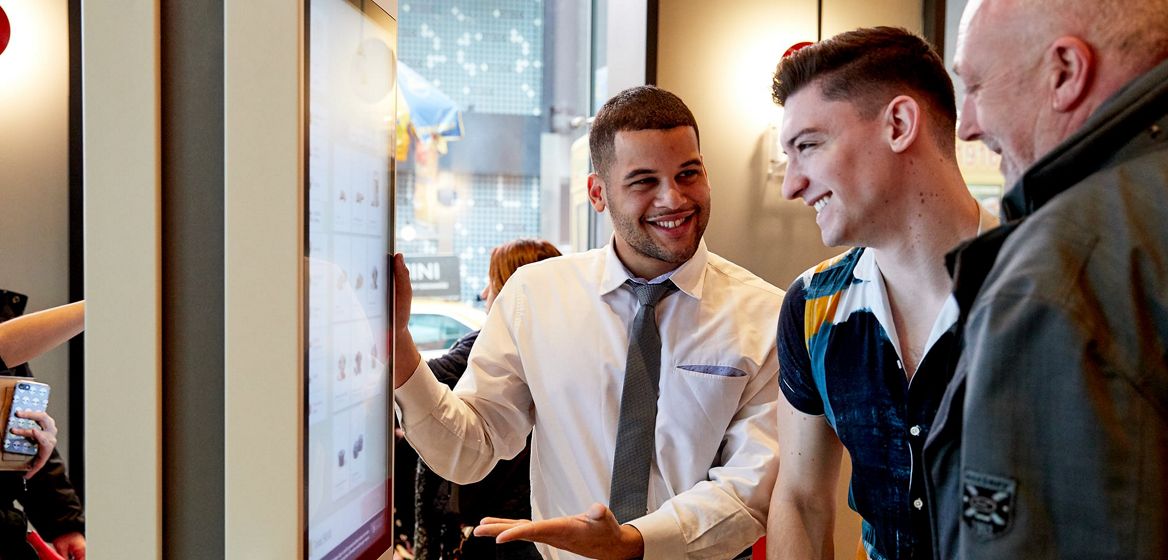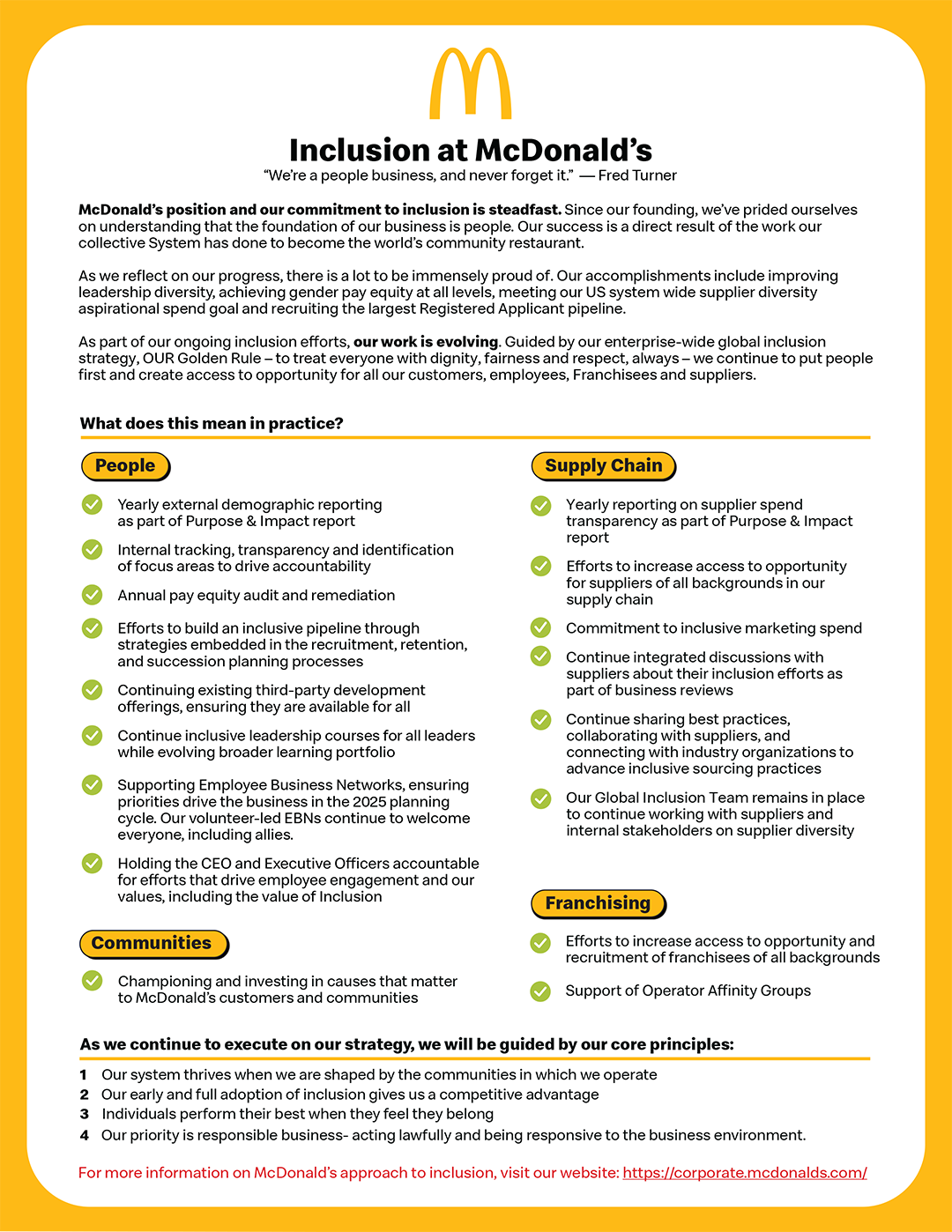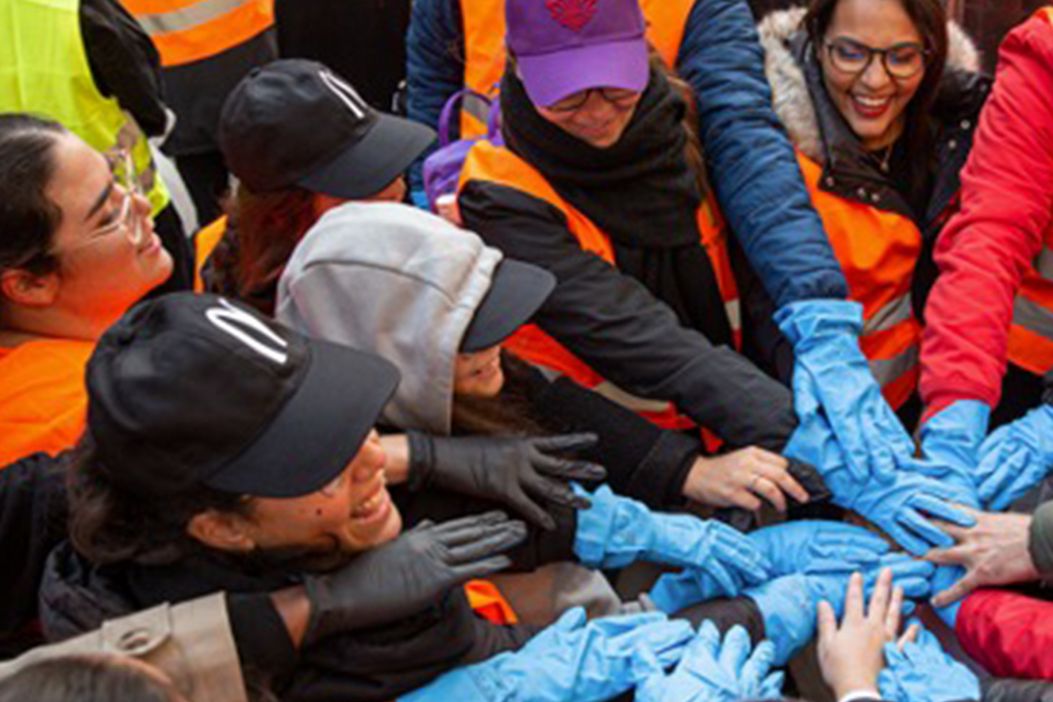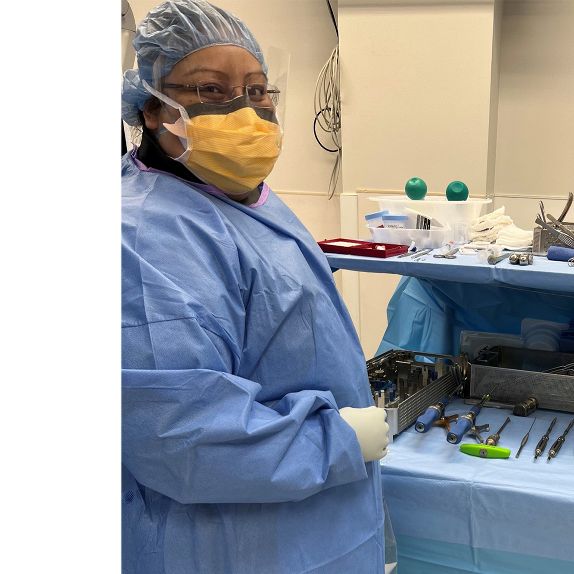Our Commitment to Inclusion
McDonald’s commitment to Inclusion is part of our heritage – we strive to be a place where access to opportunity abounds – no matter who you are or where you’re from. Our success in the future builds on our history of embracing diversity as a competitive advantage.
As a global company the size of McDonald’s, we believe we have the power to make a positive difference in the world. Every time someone walks through our doors, rolls into the drive-thru, sees McDonald’s commercials or experiences our brand, we have a chance to build community and foster inclusion.
Our Approach to Inclusion
At McDonald’s, we believe in the power of OUR Golden Rule: treating everyone with dignity, fairness, and respect, always. This belief, grounded in our values, is at the heart of everything we do. These values guide our commitment to putting people first and creating access to opportunity for everyone – whether it’s our customers, employees, Franchisees, or suppliers. As a company, we are dedicated to doing what’s right. We strive to be a trusted presence in the places we call home, growing together and building connections that help make everyone feel welcome, respected, and part of something bigger.
We know that Inclusion is not just a value – it’s a key driver of our business success. We’re proud of our progress, but let’s be real – there’s still work to do. Inclusion isn’t a box we check; it’s a journey we’re on. It takes listening, learning, and putting in the work, day after day, to ensure we are shaped by the various communities in which we operate around the world.
Our People
Driving Business Results through Our People Practices
We aim to make McDonald’s an employer of choice by creating an environment where everyone feels valued, respected, empowered to share their unique perspectives, and have access to opportunities because tapping into diverse viewpoints drives innovation and makes us stronger.
We are committed to taking steps to develop strong, inclusive leaders who are equipped to help our talent excel in their careers and support our business growth.
We are likewise committed to embedding inclusion into our recruitment process. This includes:
- Using artificial intelligence (AI) tools to create gender-neutral, inclusive job descriptions.
- Employing a variety of approaches to reduce the potential for bias in the recruitment process.
- Strategically structuring interviews and interview guides to help support equity and fairness throughout the selection, interview and offer process.
Creating and Retaining a Diverse Talent Pipeline
We are committed to continuously exploring ways to enhance inclusion across all levels of the Company. Since 2022, we have offered an Inclusive Leadership course for employees in Director-level positions and above. The course encourages leaders to examine policies, practices, actions, circles of influence and connections that contribute to strengthening a culture of inclusion at the Company.
Equal Pay for Equal Work
We recognize the critical importance of equal pay practices and how they influence the battle against workforce inequity. We also believe transparency is important when building trust with our people, living our values and holding ourselves accountable, which is why, in 2021, we publicly communicated our commitment to equal pay and to close pay gaps identified in annual equal pay analyses.
Our annual pay gap analysis compares pay for comparable work while considering the many factors that legitimately drive differences in pay, such as experience (general and McDonald’s-specific), job level/grade, performance and location. We close pay gaps identified and report on our progress. Read our latest pay gap analysis in our Purpose & Impact Report (PDF).
See our Talent & Benefits page for more detail on our compensation philosophy, including the Global Pay Principles in place across our owned markets to help ensure that good pay practices are understood, consistently implemented and executed across McDonald’s.
Fostering Inclusion Through Employee Business Networks
Our employee business networks (EBNs) are employee-led, volunteer, business-focused groups for all employees and are designed to create a sense of belonging at the Company. EBNs support an inclusive work environment, foster relationships, provide career development opportunities and help grow our business. They provide members, which include allies, with opportunities to network, learn from one another and grow their careers together. EBNs also provide a source of mentors, role models and information on career strategies and opportunities for leadership skill building.
Our EBNs bring our Company values to life every day and share timely, important cultural insights that support the business.
Our Current Global Employee Business Network
- Global Women’s Leadership Network (GWLN)
Our Current U.S. Employee Business Networks
- Asian Pacific Middle East Network (APMEN)
- The McDonald’s Black Employee Network (BGLDN)
- Disability Inclusion Group (DIG)
- Hispanic Employee Business Network (MOSAIC)
- PRIDE Employee Business Network
- Veteran Employee Business Network (VEBN)
- Working Parents Business Network (WPBN)
- Young Professionals Network (YPN)
Click here for more information about our Employee Business Networks.
Our Franchisees
Building a Franchisee Pipeline that Thrives in the Communities We Serve and Fuels Our Growth
We are committed to increasing access to opportunities for Franchisees from all backgrounds and providing them with resources to help them thrive. Their success in adapting to local cultures fuels McDonald’s growth and positively impacts communities everywhere.
In our U.S. market, over 2,045 Franchisees have access to five Franchisee association groups: the National Black McDonald’s Operators Association, the McDonald’s Hispanic Owner-Operators Association, the Women Owners Network, the Asian McDonald’s Operator Association and the McDonald’s Owner Operator Pride Network. These groups serve to promote entrepreneurship and foster supportive connections between Franchisees.
Our Suppliers
Fueling Economic Impact and Innovation through Our Robust Supply Chain
We continue to expand and optimize our robust and innovative supplier pipeline, creating access to opportunities for a diverse range of suppliers to compete for our business, grow with us and build lasting business relationships that help drive economic impact.
Across our U.S. System – including Franchisees – McDonald’s spent approximately $19.0 billion in 2023 with U.S. suppliers. As such, we believe we have a responsibility and a unique opportunity to work collaboratively with our suppliers and help drive change in our business and beyond.
Related Stories

